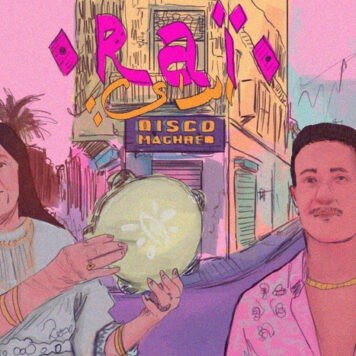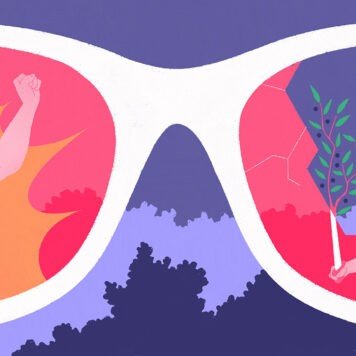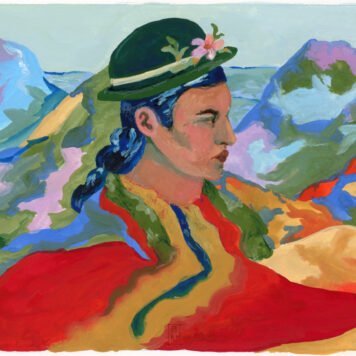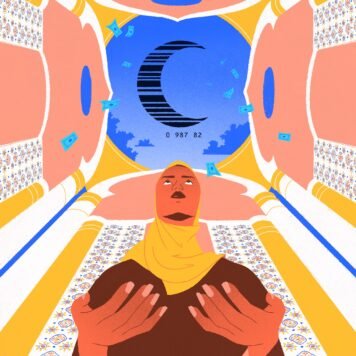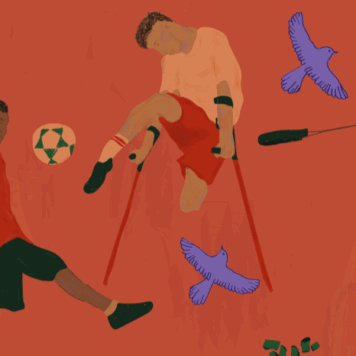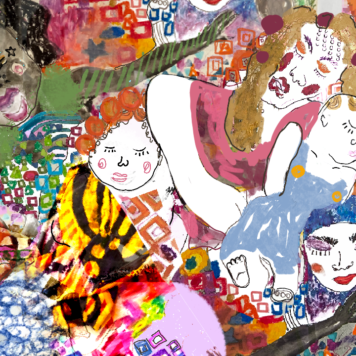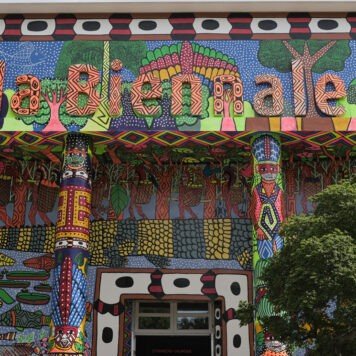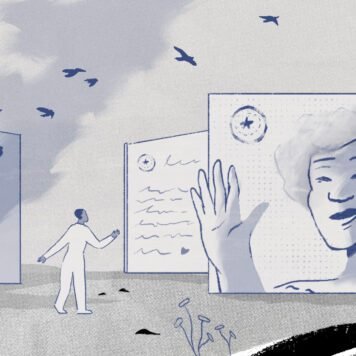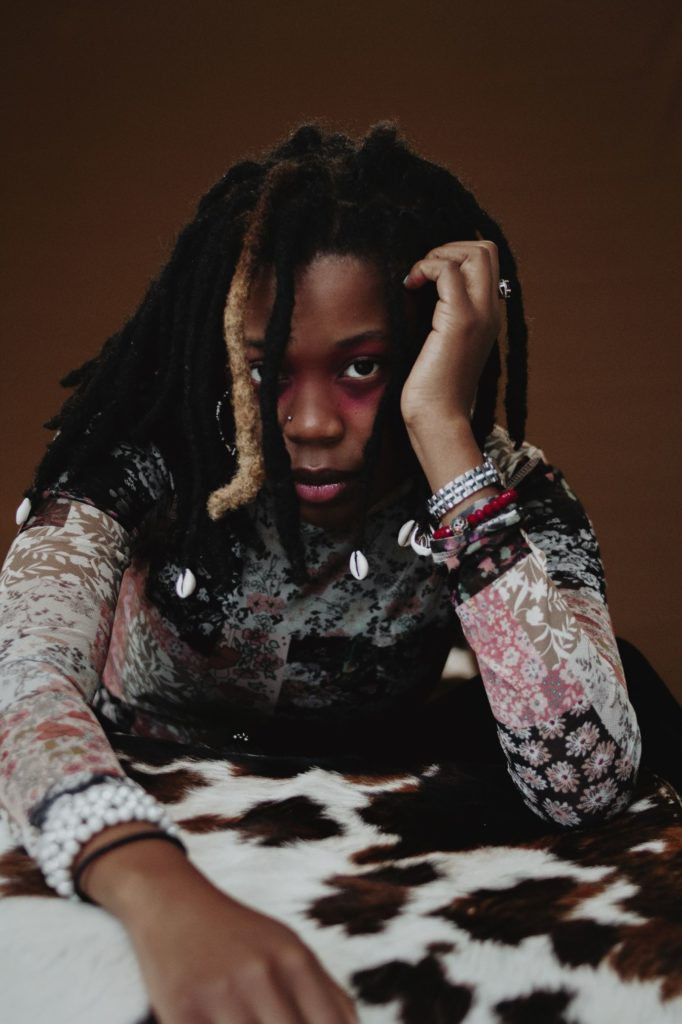
I seldom meet someone so young with such a strong conviction about who they are, and what their place is in the world. I say this as if I’m a wise old sage – I’m not. I’m only about two or three years older than Lady Donli who is in her early 20s. However, we live in a world in which we spend vast portions of our lives trying to find our feet, carve out some kind of a meaningful path, and make some sort of sense of our so-called “purpose”. So talking to Lady Donli, who oozes self-conviction, has a clear raison d’être, and a healthy grip on where she’s trying to go – suffice to say I’m beyond refreshed, if not slightly envious.
And now to add to the above, Lady Donli also speaks with this totally endearing nonchalance, one of caring enough to the point of not being rude, but not so much that she seems totally self-obsessed. Words flow from her mouth with a careless perfection, as if everything she says is just thought of on the spot, but through some sort of magic, crafted into complete and utter sense that has you nodding, and agreeing, and “hmm-ing” and “yes-ing”. Chatting with Lady Donli is no less a treat than it is a highly insightful experience.
Life has always been music in a way…”
We start by discussing the origins of her passion for music. Born in Ohio (USA), but having grown up in Abuja (Nigeria), Lady Donli expresses her gratitude for being able to pursue her creative and musical talents from a young age. Whilst academic studies were prioritised, her parents always encouraged her to write music, poetry and stories, and never shunned away her passion for music and creativity. Donli emphasises this unique importance, as she does not take for granted her parents’ support, especially in a society where creative pursuits are often deemed less important than preparing oneself for corporate employment.
Following secondary school, Lady Donli studied Law as her undergraduate degree at the University of Surrey (U.K.), which was essentially a means of justifying her continued pursuit of music. However, this tactic did not immediately pay off for her, as she encountered significant difficulties along the way.
“I could never fully immerse myself into music at uni, I was in a dark space. I was making music on the side but not pursuing it properly – there was too much pressure on the side and the whole university system was draining.”
Upon returning to Abuja in 2017, Donli tells me about how her music career continued to encounter hurdles as she sought to find her feet, but struggled to successfully land.
“I used to go to Lagos every weekend for shows, then one weekend I just didn’t go home [to Abuja]. My Dad, who normally calls me Lady, picked up the phone and he called me Zainab. I told him I wouldn’t be coming back home.”
The rest of 2017 saw Donli continue to hustle, create, and perform in Lagos, but to no great avail. New Year’s eve of that year marked the epitome of a rough period as Donli found herself chewed up by Lagos, spending the turn of the year solo.
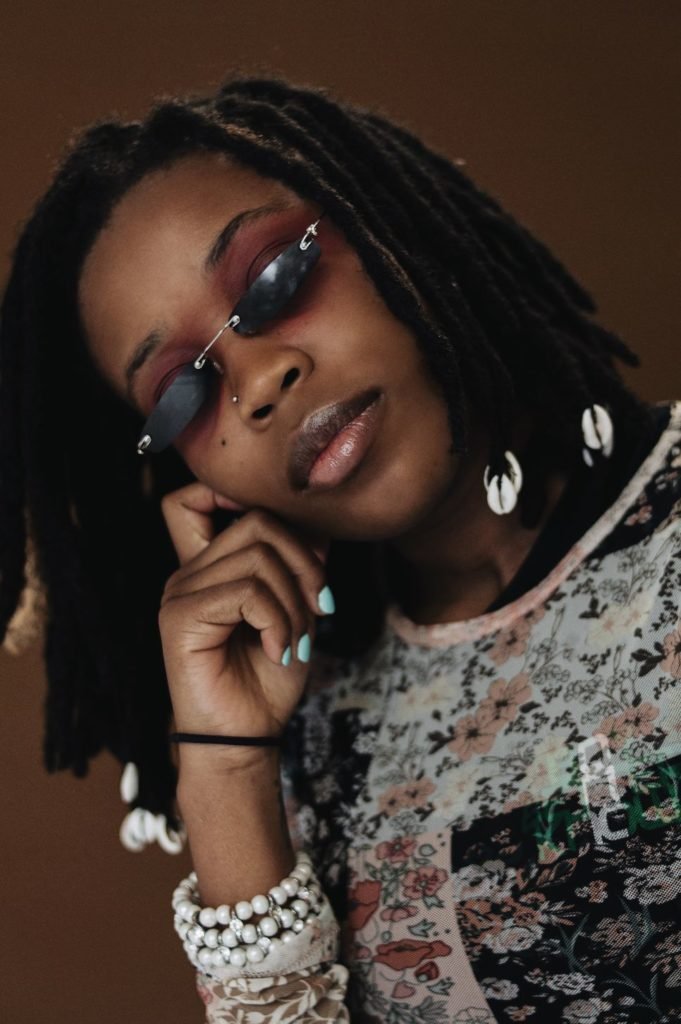
“I felt if I went back to Abuja it would be a sign of defeat.”
However, 2018 brought about a much better spout of luck, and saw Donli rise out of the ashes. In April that same year, a close friend bought Donli a one-way ticket to London, where she hunkered in the studio and began to focus on producing music. Success followed swiftly as she soon after performed her first headline show in Toronto that year: “people came and were really excited! About 200 people came; it helped my confidence and self-esteem so much.”
The gig in Toronto sparked the beginning of a North American mini-tour with gigs in Ottawa, L.A., and New York. Donli reflects on the impact of these gigs, which helped her to grow her fan base, and sincerely boost her morale:
“When I look back I was obviously so insecure in Lagos, I was just trapped in a bubble of insecurity – I understand why people quit. No one can make me feel any kind of way now, I like my stuff; I own my stuff.”
2019 became Donli’s first year of glory, as she proactively changed how she looked, reinvented herself, and intentionally defined what she wanted to be, and how she wanted her music to be perceived. London became her escape from the chaos of Lagos, and it was in fact from London that she dropped her first album, “Enjoy Your Life.” It was upon her return to Lagos that she would quickly realise how strongly her album had resonated – it was a hit.
“I was going out and people were like, “Are you Lady Donli?”, calling their friends and taking pictures.”
I try to goad her into indulging in her newly found fame but for Donli neither the status nor stardom really matters to her. Growing up in Abuja, a city far calmer than the glitz and glamour of Lagos, West Africa’s party city, it is clear that Abuja has kept Donli slightly sheltered, but more importantly sincerely grounded.
“Being away [from Lagos] helps me – it keeps me down to earth and detached from it all.”
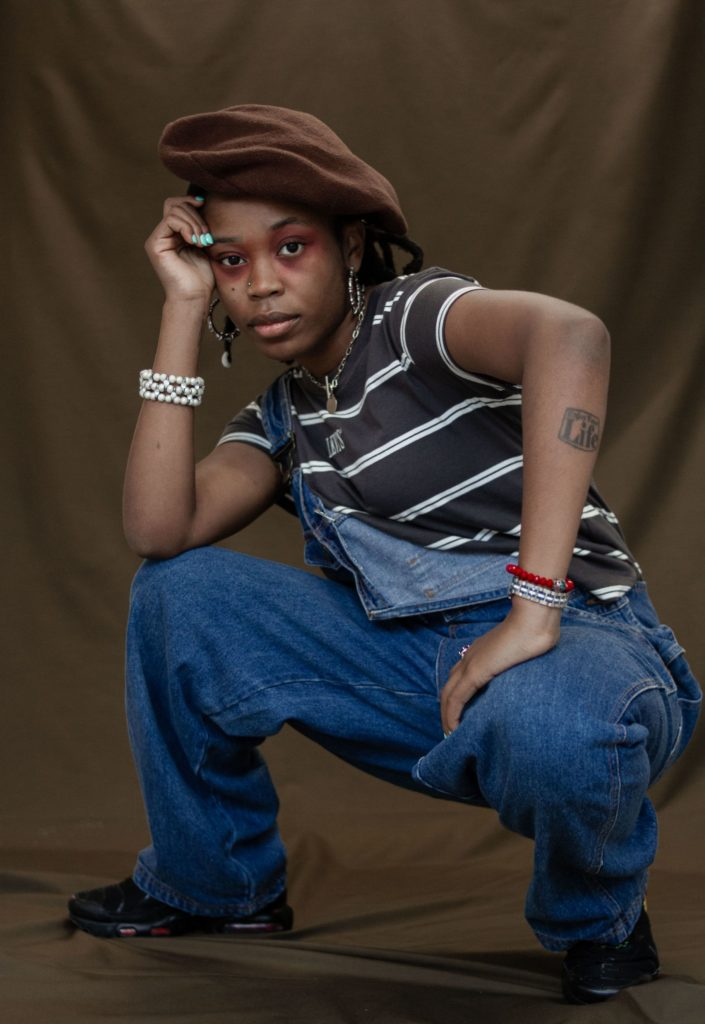
“All I could think of was being in the crowd whilst I was performing on stage.”
Benefiting from the details of her music career trajectory thus far, I’m eager to hear more about life “after the blow”, and her experiences of performing “Enjoy Your Life.”
In line with her trend of escaping to London to create and produce, invariably Donli’s first performances of the new album took place in the U.K. capital. Despite an upbringing in Nigeria, London was the first place that Donli had truly experienced concert culture, during her university days.
Subscribe to shado's weekly newsletter
Exclusive event news, job and creative opportunities, first access to tickets and – just in case you missed them – our picks of the week, from inside shado and out.

“London was the first place I’d come for concerts. It was the first place I had come to see a concert – my first exposure, my first time seeing live an artist that I liked.”
Speaking about her own performances in London she tells me with great excitement:
“It was such a proud moment, I honestly felt so proud! Having been so inspired by others, I was now doing it for someone else. It was such a crazy step closer to realising the dreams I had when I had been the one in the audience listening.”

“I wasn’t going to do a Lagos show before there was demand for me to do a show in Lagos.”
Listening to Donli’s music it is clear that the singer pays direct homage to musical traditions from Nigeria and more broadly Africa.
“I want people to listen to something that reminds us of ourselves, so much more than what we’re currently putting out,” she says, in relation to the current state of Nigeria’s music industry.
Donli tells me about the varying genres of music from around the world that now inspire her own sounds; everything from rock band culture, to music from Mali and Senegal. She extends this point, identifying the similarities across these Saharan cultures, and indeed Hausa culture, her own. Donli focuses on and identifies the similarities between these cultures, imbibing the commonalities of these sounds into her music.
She speaks loosely about this idea of an “African sound”, so I’m eager to quiz her on this and get her to articulate exactly what she means.
“African sounds… it’s a connection to what I’ve ever felt is me, my nature, my origin… something that I can relate to on a different plane. African sounds speak to you in a certain way and make you feel about home, or Zaria, or grandma, or the choir in church. It’s like how you eat good food from home! That’s what the music does for me.”
This evocation of nostalgia is undoubtedly present in her music, enhanced by what can only be described as her magical relationship with The Cavemen. The fusion of these two musical forces brings reminiscent sounds of high life, fuji guitar inflections, and even hints of Juju music, into a very 21st century context, leaving us with a sound that is entirely new, yet feels like something our parents have been playing to us for years.
“[The music] makes you love being in Nigeria and home. The whole point is to bring about and encourage only positive associations. Everything is about ownership, and what we want the world to know us for…”
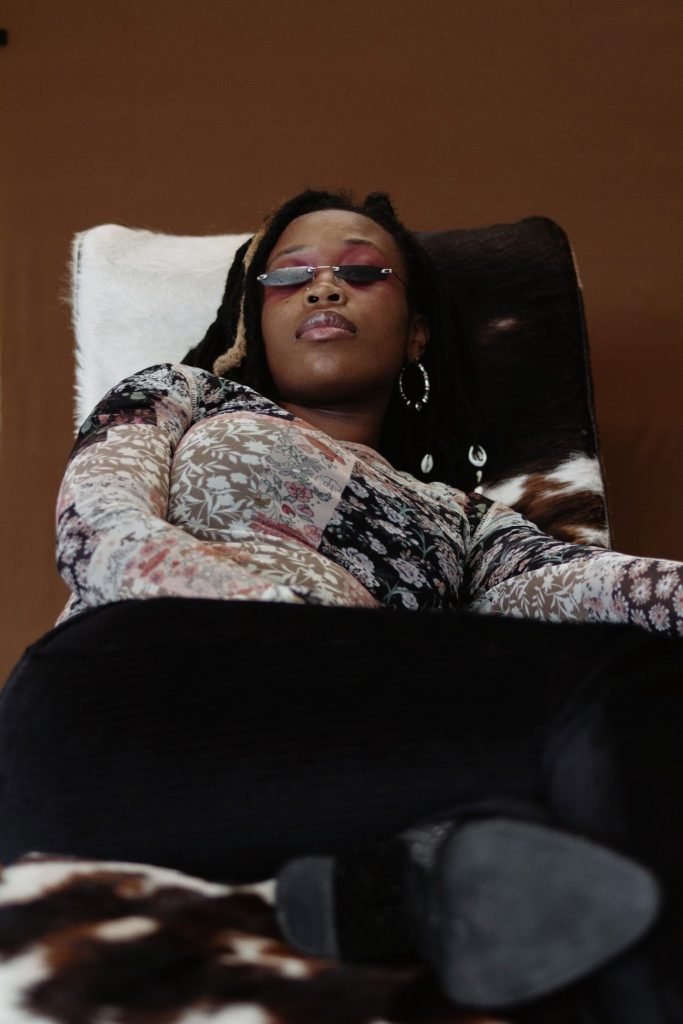
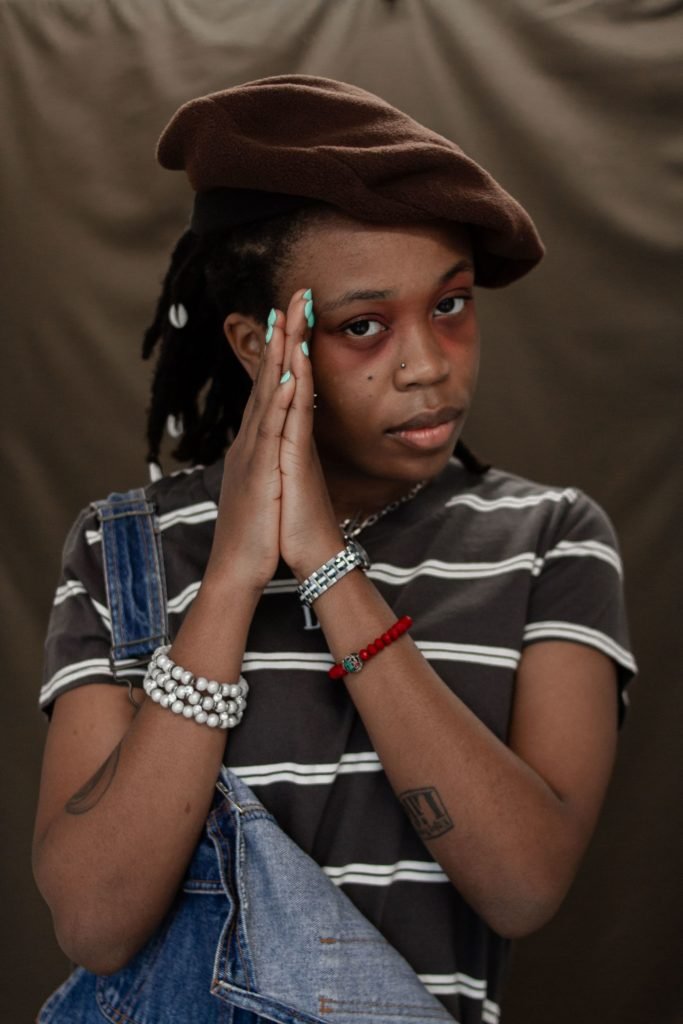
“I’m a pan-African rockstar and I want to carry that mantle on my back. I want people that listen to my music to really question, “what does it mean for me to be African?”
Donli kicked off our conversation identifying herself as a pan-African rockstar, so I knew it would be amiss not to interrogate this properly. Sure, I know what a rockstar is… but the term pan-African has taken on so many interpretations and meanings, that I’m keen to understand what she means when she calls herself pan-African.
“I believe in our unity [as a continent], and the Diaspora, coming together and understanding our roots. A lot of people are detached and oblivious. Be interested and intrigued to go and learn. Learn the real history, not the adulterated one. All of this can help us improve as a nation, as a continent, as a people.”
With a significant faction of contemporary Nigerian music focused on sex, money, and partying, it is truly a breath of fresh air to hear about Donli’s more profound ambitions and beliefs. Pan-Africanism is clear in her music making process, but she now wants to further this passion in activism, lending her voice to important causes, “sprinkled in the music in a fun way.”
However, her beliefs do not stop at pan-Africanism, but powerfully extend to feminism, with a subtle nod to the politics of Sankara, insofar that her idea of a pan-African revolution is co-dependent on a feminist revolution.
“I love seeing women succeed, I want to inspire younger women. I want people to think that, “she can do it, therefore I can definitely do it.” It’s important to see yourself in someone, to dare to try. As much as I can, I want people to see me as a figure for young female artists, putting them on my tour and EPs,” powerful sentiments considering the grossly gender lop-sided state of the music industry, globally.
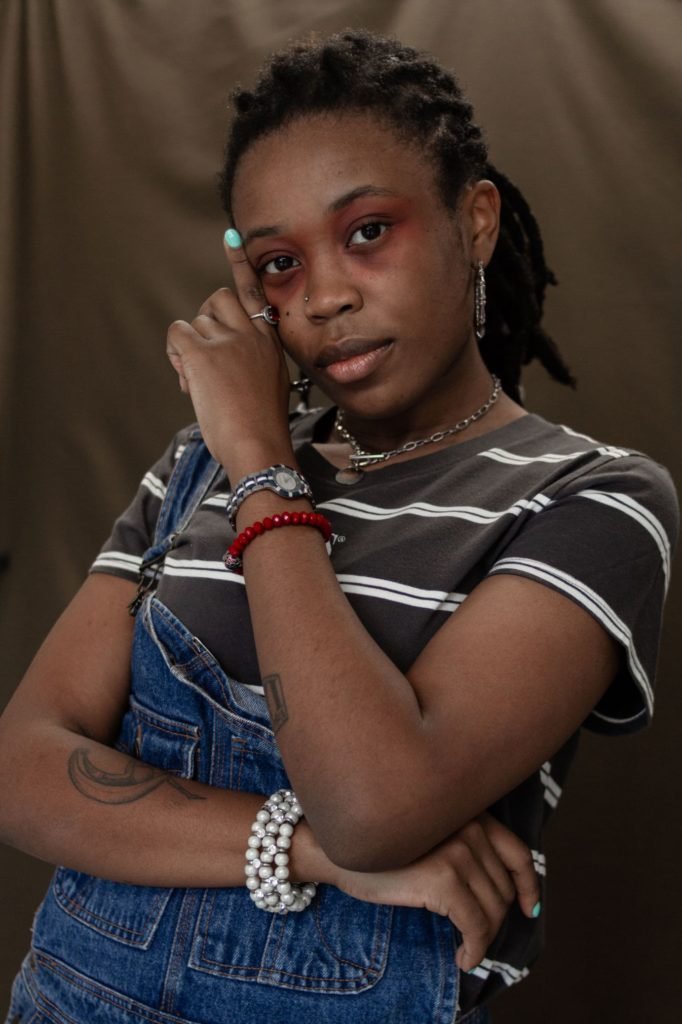
Wonda Wonda, a track from her new EP drops today, and yet again, we’re invited to indulge in Donli’s dulcet tones with a feature from Ghanaian singer Darkovibes. The track is slightly heavier on synthetic production than the acoustic sounds from “Enjoy Your Life,” but the authentic rawness of Donli’s unique sound remains uncompromised. If this is the standard for the rest of the EP we are in for a treat. The EP was set to be released in August of this year, but with the current global crisis this timeline is now slightly up in the air.
Lady Donli and I actually had our conversation a while before the outbreak of COVID-19 had officially become a pandemic so we weren’t able to address this major issue, especially from the perspective of how it affects music. Concerts are now obviously a no-go, and even in the aftermath of this pandemic, will we still want to pile in shoulder to shoulder, body to body, in crowded venues where germs are bound to spread like wildfire?
How the global music industry navigates this new chapter will be interesting. How the African, and specifically Nigerian music industry navigates this will be of particular interest, as Nigeria’s music scene has been on a staggeringly sharp upwards curve for the past decade with no sign of letting up.
No matter our lifestyles or circumstances, music will remain a part, and musicians will continue to produce. I suspect we will hear some truly amazing and impactful music that comes out of this bizarre period that will go down in history for decades to come. In the post-Covid world, undoubtedly some musicians will adapt, change, and carve out their paths for success. Others may be less fortunate, for whom the post-Covid world could prove to be less favourable.
Something tells me Lady Donli will come out on top. Lady Donli is a rockstar – a pan-African one at that. Watch this space.


